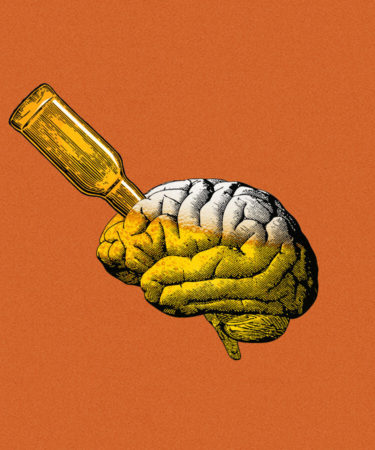After a typical day of work, an alcoholic beverage can be the perfect way to unwind or relax. One new study suggests that consuming a drink a day might even be good for brain health, too.
On Monday, international peer-reviewed medical journal JAMA Network published a study linking moderate alcohol intake to improved cognitive function. The study focused on middle- and older-aged adults, measuring the relationship between alcohol consumption and aging.
According to researchers and their analysis, the results showed that those with low to moderate weekly drinking habits (15 or fewer drinks for men; eight or fewer drinks for women) indicated higher results for cognitive health and slower rates of brain function decline, compared with non-drinkers.
The participant group included 19,887 individuals from the University of Michigan’s Health and Retirement Study, with an average age of 61.8 years old. Over a period of 12 years (1996 to 2008), participants were sent surveys to test cognitive function, mental status, word recall, and vocabulary. The study also took into account self-reported drinking habits.
Furthermore, the study found a wide difference in cognitive results based on racial and ethnic groups. According to JAMA’s conclusions, the better cognition scores were stronger for white individuals than for black individuals. According to Kaarin Anstey, a director of the NHMRC Dementia Centre for Research Collaboration in Australia (not directly involved in the study), “Few studies have evaluated whether the effects are similar in different racial or ethnic groups. This [finding] raises the possibility that ethnic groups vary in their vulnerability to the cognitive effects of alcohol.”
The study also found a U-shaped relationship between drinking and brain-functioning, meaning binge drinking doesn’t result in a benefit to brain health. The cognitive benefit has a maximum in regards to drinking intake — around 10 to 14 drinks as shown in the findings.
Much like an apple, a drink a day may keep the doctor (or the effects of old age) away.
